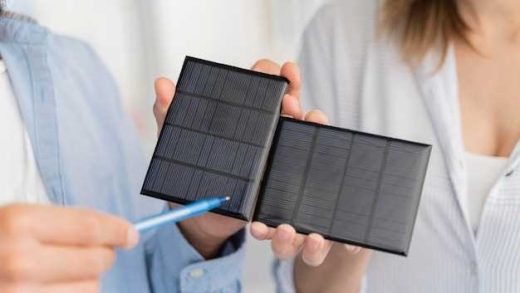
Renewable energy sources have emerged as the driving force behind a new era of sustainable electricity. As the world seeks to reduce its reliance on conventional power grids, harnessing the power of the sun has become a captivating solution. In order to fully harness this abundant energy resource, it is crucial to explore innovative and efficient methods of storing and utilizing solar power.
One key aspect in the quest for optimal solar energy utilization lies within the realm of advanced energy storage systems. These sophisticated technologies serve as the cornerstone of maximizing self-reliance and minimizing dependency on the grid. By seamlessly integrating with solar installations, cutting-edge battery solutions ensure a continuous and reliable supply of electricity, even when the sun sets or when the weather conditions are less favorable.
Enabling a more sustainable future
The search for sustainable energy storage solutions has never been more pressing. In an era where climate change and environmental concerns dominate the agenda, the need to transition towards clean and renewable energy sources is paramount. The integration of efficient battery technologies not only enhances solar power self-sufficiency but also reduces carbon emissions and mitigates the harmful impact of traditional energy generation methods.
Empowering individuals and communities
Furthermore, the utilization of advanced battery systems provides a unique opportunity to empower individuals and communities. By enabling households to become self-consumers of solar energy, the financial burden associated with utility bills is dramatically reduced. This, in turn, unlocks a new wave of energy independence and economic sustainability.
As the world embraces the limitless potential of solar energy, it is crucial to explore and invest in battery technologies that will maximize self-consumption. By doing so, we further our journey towards a greener and cleaner future, where electricity generation becomes more decentralized, efficient, and environmentally friendly.
Solar Energy Storage Basics
In this section, we will explore the fundamental concepts and principles behind solar energy storage. Understanding the basics of solar energy storage is crucial for maximizing the efficient utilization of renewable resources and achieving sustainable energy goals without relying on conventional power grids.
1. Importance of Energy Storage
The first key aspect to consider is the significance of energy storage in the context of solar power systems. As renewable energy sources like solar panels generate electricity intermittently, energy storage plays a vital role in storing excess energy during periods of high generation and supplying it during times of low or no generation.
2. Benefits of Solar Energy Storage
Efficient solar energy storage offers numerous benefits, which are essential in taking full advantage of solar power systems. Some of the advantages include:
- Increased self-consumption: by storing excess solar energy, households and businesses can reduce their reliance on the grid and maximize the utilization of self-generated electricity.
- Enhanced grid stability: energy storage systems provide stability to the power grid by absorbing excess energy or supplying power during periods of high demand.
- Energy cost savings: storing solar energy allows users to avoid peak electricity rates and reduce their overall energy expenses.
- Backup power supply: in the event of a power outage, solar energy storage systems can provide a reliable backup power source, ensuring uninterrupted electricity supply.
By understanding the importance and benefits of solar energy storage, individuals and businesses can make informed decisions regarding the implementation of energy storage solutions to optimize their solar power systems.
Understanding the Role of Batteries in Enhancing Personal Electricity Consumption
Exploring the significance of energy storage systems in augmenting self-reliance and optimizing electricity usage.
The Essence of Batteries in Improving Residential Power Utilization
As technology progresses, the drive towards self-sufficiency in electricity consumption has become increasingly vital. An essential element in achieving this goal is comprehending the role that batteries play in optimizing personal power usage. By harnessing the potential of these innovative devices, individuals can maximize their energy independence and minimize dependency on external grids.
Unfolding the true potential of batteries…
The utilization of batteries in residential settings is transforming the way individuals interact with electricity. These devices act as power reservoirs, storing excess energy generated from diverse sources, such as renewable energy systems or alternative power grids. By capturing and preserving this surplus energy, batteries empower homeowners to efficiently allocate energy based on their personal requirements.
Elevating energy independence through smart batteries
The integration of smart batteries into the energy storage landscape has revolutionized personal power consumption. With the ability to intelligently monitor, analyze, and adjust energy flow, smart batteries optimize self-consumption by storing electricity during periods of low demand and releasing it when necessary. This dynamic approach maximizes efficiency, minimizing wastage and reducing reliance on external energy providers.
Unlocking new possibilities with battery technology…
Advancements in battery technology have facilitated innovative features, such as bidirectional flow control and real-time energy management systems. These capabilities allow homeowners to achieve a seamless and optimized self-consumption experience. Additionally, batteries equipped with intelligent algorithms and predictive analytics enable users to anticipate and adapt to changes in energy supply and demand, ensuring an uninterrupted and personalized power supply.
The future of self-consumption lies in energy storage
As countries worldwide embrace sustainable energy solutions, the role of batteries in maximizing self-consumption is set to become increasingly influential. By investing in battery technologies, people can proactively shape their energy consumption habits, reducing their impact on the environment while gaining long-term energy independence. With ongoing advancements, batteries are poised to empower individuals further, establishing a future where self-consumption is the norm rather than the exception.
Types of Battery Technologies for Solar Storage
In the realm of harnessing the sun’s power and storing it for later use, there exists a multitude of battery technologies that offer diverse solutions. These technologies, designed specifically for solar energy storage, provide efficient methods to maximize self-consumption without relying on traditional power sources.
One prominent type of battery technology for solar storage is the lithium-ion battery. Widely known for its use in consumer electronics, the lithium-ion battery has found its way into the renewable energy sector. With its high energy density and long lifespan, it has become a popular choice for residential and commercial solar energy storage applications.
Another noteworthy battery technology is the lead-acid battery. Although it has been around for decades, it has undergone significant advancements to meet the demands of modern solar storage systems. Lead-acid batteries are known for their robustness and affordability, making them a preferred option for off-grid installations and smaller-scale solar setups.
In recent years, hydrogen fuel cells have emerged as a viable alternative for solar storage. These fuel cells generate electricity through an electrochemical process, utilizing hydrogen and oxygen to produce power. Hydrogen fuel cells offer the advantage of extended storage duration and the ability to scale up for large-scale solar energy storage projects.
Moving beyond traditional battery technologies, flow batteries have gained attention for their unique design and flexibility. Flow batteries store energy in the form of electrolyte liquids, allowing for efficient capacity scaling and extended cycle life. These batteries offer the potential for long-duration storage and are adaptable to various solar storage applications.
Additionally, emerging technologies such as sodium-ion batteries and zinc-air batteries show promise in further expanding the options for solar storage. Sodium-ion batteries have the potential to offer a more cost-effective and environmentally friendly solution, while zinc-air batteries boast high energy density and the ability to utilize abundant zinc resources.
In conclusion, the world of solar storage offers a rich array of battery technologies capable of maximizing self-consumption. From lithium-ion batteries to hydrogen fuel cells and innovative solutions like flow batteries, the options continue to expand, providing a range of choices to meet the unique requirements of various solar energy storage projects.
Exploring Lithium-Ion, Lead-Acid, and Flow Batteries
Delving into various battery technologies is essential for a comprehensive understanding of efficient energy storage systems. In this section, we will investigate the unique characteristics and applications of three different types of batteries: Lithium-Ion, Lead-Acid, and Flow Batteries.
Lithium-Ion batteries, known for their high energy density, have become increasingly popular in recent years due to their versatility and durability. With their lightweight design and long cycle life, these batteries are widely used in numerous applications, ranging from portable electronics to electric vehicles.
Next, let’s explore Lead-Acid batteries, which have been a reliable energy storage solution for decades. Although they have a lower energy density compared to Lithium-Ion batteries, Lead-Acid batteries are known for their cost-effectiveness and robustness. They are commonly used in applications such as uninterruptible power supplies (UPS), telecommunications, and automotive.
Lastly, we will look into Flow Batteries, a promising technology for large-scale energy storage. Flow Batteries offer the advantage of decoupling power and energy, making them ideal for applications that require long duration energy discharge. They are commonly used in renewable energy systems, grid stabilization, and off-grid applications.
Understanding the unique characteristics and applications of Lithium-Ion, Lead-Acid, and Flow Batteries is crucial in determining the optimal choice for different energy storage requirements. By exploring these battery technologies, we can enhance our knowledge of battery systems and maximize the efficiency of self-consumption in solar energy storage.
Advantages and Disadvantages of Lithium-Ion Batteries
Lithium-ion batteries have gained significant popularity in various industries due to their unique characteristics and performance. This section aims to provide an insightful analysis of the advantages and disadvantages associated with these advanced energy storage devices.
One of the key advantages of lithium-ion batteries lies in their high energy density, allowing them to store a substantial amount of energy in a relatively compact size. This attribute makes lithium-ion batteries particularly suitable for applications where space is limited and mobility is crucial. Moreover, they exhibit a low self-discharge rate, ensuring that stored energy remains available for extended durations without significant loss.
Another notable advantage of lithium-ion batteries is their high efficiency, which refers to the conversion rate of stored energy during charging and discharging processes. This efficiency allows for more effective utilization of available energy, minimizing energy wastage compared to alternative technologies. Furthermore, lithium-ion batteries have a longer lifespan compared to other rechargeable battery types, contributing to their cost-effectiveness over the long term.
However, alongside these advantages, there are also some limitations to consider. One significant disadvantage of lithium-ion batteries is their susceptibility to high operating temperatures, which can impact their performance and longevity. Extreme heat can cause thermal runaway, leading to potential safety hazards such as fire or explosion. Additionally, the manufacture and disposal of lithium-ion batteries involve complex and resource-intensive processes, contributing to their environmental impact.
It is essential to carefully evaluate these advantages and disadvantages when considering the use of lithium-ion batteries in solar energy storage systems. Understanding the trade-offs associated with this technology will enable informed decision-making, ensuring the optimal integration of lithium-ion batteries for maximized self-consumption and efficient utilization of solar energy.
Examining the Pros and Cons of the Most Popular Battery Technology
In this section, we will take a closer look at the advantages and disadvantages of the leading battery technology currently available in the market. By understanding the pros and cons, we can make informed decisions regarding the implementation of this technology in solar energy storage systems.
Advantages
- Enhanced Efficiency: The prevalent battery technology offers improved energy conversion rates, allowing for higher efficiency in storing and releasing energy.
- Increased Durability: The most popular battery technology is known for its robust build quality and extended lifespan, ensuring long-term reliability.
- Scalability: With the ability to scale up or down easily, this technology offers flexibility in matching the storage requirements of varying solar energy systems.
- Steady Performance: The leading battery technology maintains a consistent energy output, ensuring a stable power supply even during peak demand periods.
- Widespread Availability: Due to its popularity, this battery technology is widely accessible, ensuring easy procurement and compatibility with different solar energy systems.
Disadvantages
- High Initial Costs: The most popular battery technology comes with a relatively higher upfront investment, which can be a significant deterrent for some consumers.
- Environmental Concerns: The manufacturing and disposal processes of these batteries can pose environmental risks if not handled properly, raising concerns about their ecological impact.
- Limited Lifespan: Despite their durability, these batteries have a finite lifespan, and replacement costs can be a consideration for long-term usage.
- Storage Capacity Constraints: The current technology has limitations on storage capacity, potentially restricting the amount of solar energy that can be stored for later use.
- Safety Considerations: Certain battery technologies require special safety precautions due to their chemical composition, necessitating careful handling and monitoring.
By thoroughly evaluating the pros and cons of the most popular battery technology, we can determine its suitability and effectiveness in maximizing self-consumption of solar energy. These factors will be crucial in decision-making processes concerning the integration of this technology into solar energy storage systems.
Benefits of Lead-Acid Batteries in Solar Energy Storage
Exploring the advantages of lead-acid batteries in harnessing renewable energy, specifically solar power, can shed light on the potential they hold for effective energy storage. Lead-acid batteries offer a multitude of benefits in both cost and performance, making them an attractive option for maximizing self-consumption of solar energy.
Reliability and Longevity
Lead-acid batteries are well known for their longevity and reliability, making them a trusted choice for solar energy storage systems. These batteries have a proven track record of withstanding harsh environmental conditions and providing consistent performance over extended periods. This reliability ensures the batteries’ ability to effectively store solar energy day after day for optimal self-consumption.
Cost Efficiency
Lead-acid batteries have a competitive advantage when it comes to cost efficiency. Compared to other battery technologies, lead-acid batteries are more cost-effective to produce and maintain, offering an economical solution for solar energy storage. This cost efficiency makes them a viable option for residential and commercial solar power applications, allowing for affordable implementation and greater return on investment.
In conclusion, lead-acid batteries present a range of benefits for solar energy storage without compromising performance or affordability. Their reliability and longevity ensure continuous energy storage, while their cost efficiency makes them an accessible choice for maximizing the self-consumption of solar power. By harnessing the advantages of lead-acid batteries, the potential for sustainable and efficient solar energy storage can be further realized.
Highlighting the Advantages and Use Cases of Lead-Acid Batteries
In this section, we will explore the various benefits and practical applications of lead-acid batteries. These cutting-edge energy storage devices provide numerous advantages when it comes to storing and utilizing electricity, making them a popular choice for a wide range of industries and applications.
Firstly, lead-acid batteries are known for their exceptional reliability and longevity. They have been widely used for decades due to their proven track record of high performance and durability. This reliability makes them an ideal choice for critical applications where uninterrupted power supply is crucial.
Additionally, lead-acid batteries offer a cost-effective solution for energy storage. They are relatively inexpensive compared to other battery technologies, making them a practical choice for applications with budget constraints. Their long service life and low maintenance requirements further contribute to their cost-effectiveness, making them an attractive option for both small-scale and large-scale energy storage projects.
Lead-acid batteries are also known for their versatility. They can be used in a wide range of applications, including backup power systems for residential and commercial buildings, off-grid solar energy storage systems, and electric vehicles. Their ability to deliver high currents makes them suitable for applications that require a sudden surge of power, such as starting large motors or providing emergency power during blackouts.
Furthermore, lead-acid batteries are environmentally friendly. They are fully recyclable, with a high recycling rate, which helps reduce waste and environmental impact. Their widespread availability and established recycling infrastructure make them a sustainable choice for energy storage solutions.
In conclusion, lead-acid batteries offer numerous advantages and find extensive use in various industries and applications. Their reliability, cost-effectiveness, versatility, and environmental friendliness make them a compelling option for energy storage needs.


